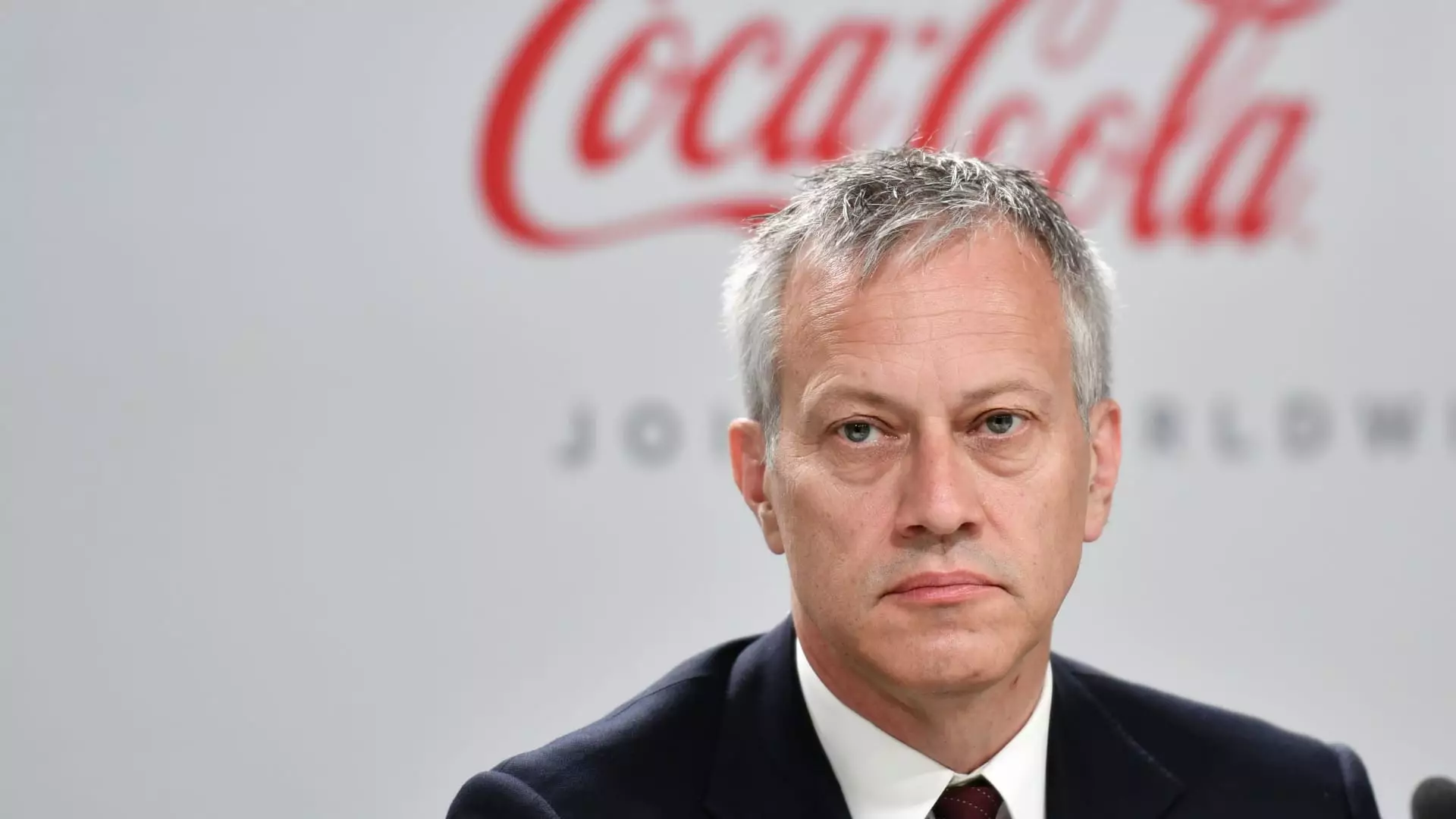The recent E. coli outbreak linked to McDonald’s has raised eyebrows across the food industry, yet Coca-Cola CEO James Quincey remains unfazed. In a world where public health incidents can rapidly affect consumer behavior and sales, Quincey’s optimism may seem surprising. However, his assessment reflects a broader understanding of the intricacies of fast-food partnerships and market dynamics. McDonald’s, a cornerstone of Coca-Cola’s client base, has historically weathered food safety scares, and while the current situation is serious, it may not be as damaging as some might anticipate.
The Coke and McDonald’s Dynamic
Coca-Cola and McDonald’s share a relationship that spans nearly seventy years, defined by mutual dependence. Coca-Cola provides its beverages to McDonald’s locations worldwide, which in turn offers an immense market presence for Coke products. The two companies have crafted joint marketing initiatives, further solidifying their partnership. Recently, Coca-Cola even contributed marketing funds to promote McDonald’s $5 value meal, demonstrating their commitment to supporting each other’s profitability.
Quincey’s articulation of their relationship as “we’re a big partner of McDonald’s, they’re a big partner of ours” underscores the collaborative essence of their business model. The reality is that successful partnerships often transcend temporary crises. If handled deftly, both firms can navigate the current storm, potentially emerging even stronger.
As the Centers for Disease Control and Prevention (CDC) linked the E. coli outbreak to McDonald’s Quarter Pounder burgers across ten states, immediate operational changes were implemented. McDonald’s has acted swiftly to remove Quarter Pounders from its menu and has temporarily ceased the distribution of specific ingredients. This proactive approach aims to safeguard customer health and maintain trust in the brand. Joe Erlinger, President of McDonald’s USA, reassured the public of the safety of their other menu items, stating confidence in their offerings.
Despite their efforts to contain the situation, both McDonald’s and Coca-Cola face an uphill battle. The outbreak coincides with a broader consumer trend of reduced spending in restaurants, a challenge exacerbated by inflation and economic uncertainties. The ripple effect of consumer behavior could potentially sway sales, not just for McDonald’s but also for Coca-Cola.
Quincey acknowledged the broader economic landscape, hinting that consumer sentiment could be affected. Diets often pivot toward health consciousness in light of food safety concerns, possibly leading to decreased visits to fast-food establishments. Even though Coca-Cola’s third-quarter earnings and revenue exceeded expectations, buoyed by price increases, the company’s shares saw a decline in trading post-announcement. This suggests that investor sentiment could also be sensitive to evolving narratives around consumer health and safety.
The peculiarity of the situation is that, while Coca-Cola’s direct sales might not be immediately impacted by the E. coli scare, the overarching sales environment is contingent on the performance of its primary partner, McDonald’s. The performance of the fast-food giant influences how consumers interact with Coke products at these establishments.
Looking Forward: Strategic Responses
In the wake of this outbreak, it will be crucial for both companies to devise strategies aimed at reinforcing consumer confidence. For Coca-Cola, it may mean intensifying their promotional efforts related to product safety and maintaining a strong presence within McDonald’s promotional campaigns. Recovery from an outbreak requires agility and responsiveness, characteristics both companies court as they navigate these treacherous waters together.
Moreover, McDonald’s must reassess its food sourcing and safety protocols to prevent future incidents and restore its brand image. Collaboratively, Coca-Cola and McDonald’s have the potential to emerge from this challenge with enhanced practices, further solidifying their market positions.
While the E. coli outbreak poses a significant challenge, both Coca-Cola and McDonald’s stand to remain resilient. By relying on their long-standing partnership, they can address consumer concerns swiftly and effectively, ensuring that customer trust and sales can recover in due time.

